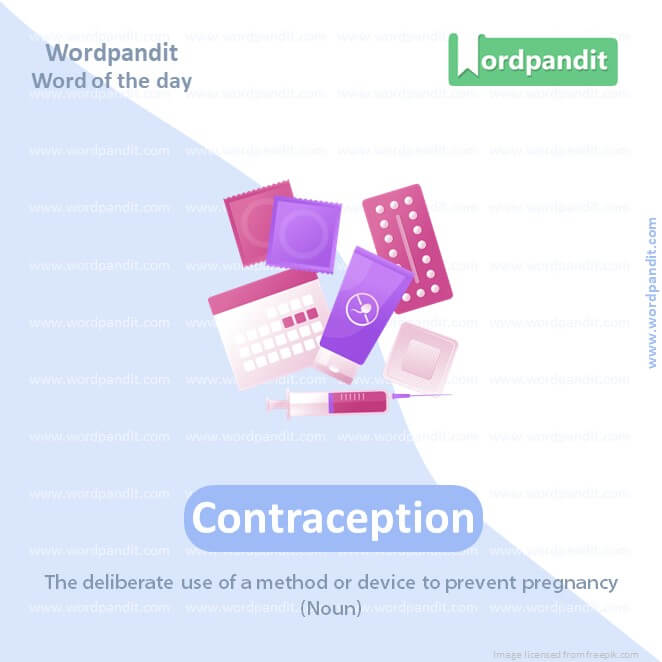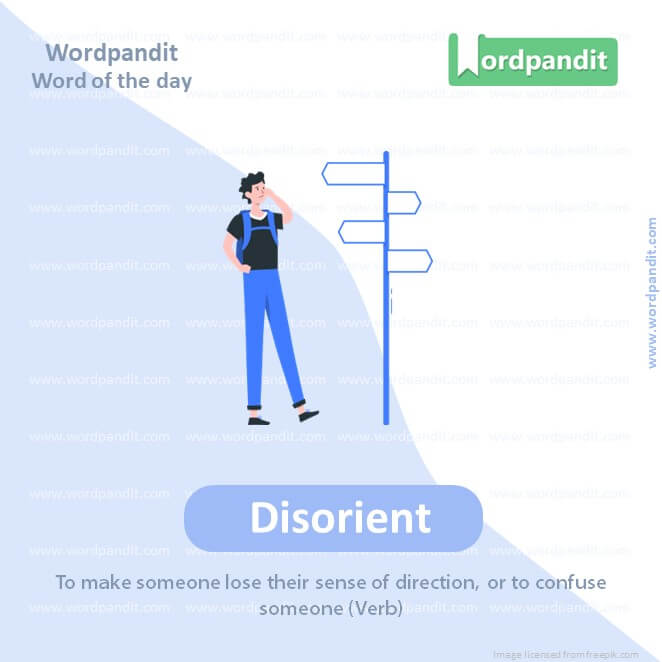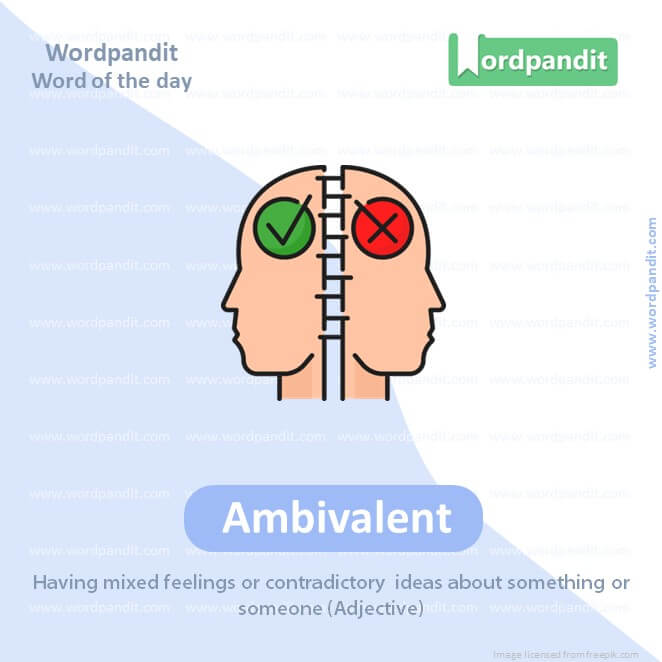Daily Vocabulary Words: List of Daily Used Words in Leading International Newspapers
Hi there. Welcome to this special section @ Wordpandit.
Our endeavour here is very simple: to highlight important daily vocabulary words, which you would come across in leading newspapers in the country. We have included the following newspapers in our selection:
• The New York Times
• The Washington Post
• Scientific American
• BBC
• The Guardian
• Psychology Today
• Wall Street Journal
• The Economist
We are putting in extensive work for developing your vocabulary. All you have got to do is be regular with this section and check out this post on a daily basis. This is your repository of words that are commonly used and essentially, we are posting a list of daily used words. Hence, this has significant practical application as it teaches you words that are used commonly in leading publications mentioned above.
Visit the website daily to learn words from leading international newspapers.

WORD-1: Endorsement
CONTEXT: DeSantis’s endorsement of Donald Trump as “superior to the current incumbent” wasn’t exactly moving.
SOURCE: New York Times
EXPLANATORY PARAGRAPH: Think of endorsement like a big thumbs up. It’s when someone, maybe someone famous or important, says they like something or agree with it. For example, if your favorite superhero says a certain kind of toy is really good, they are giving their endorsement to that toy. It’s like they are saying, “Yes, this is good, and I support it!”
MEANING: An act of giving one’s public approval or support to someone or something (Noun).
PRONUNCIATION: en-DORSE-ment
SYNONYMS: Approval, support, backing, recommendation, advocacy.
USAGE EXAMPLES:
1. The celebrity’s endorsement of the product boosted its sales.
2. She received the political party’s endorsement for her candidacy.
3. The new health campaign got an endorsement from a well-known doctor.
4. His endorsement of the book made it a bestseller.
WORD-2: Unmitigated
CONTEXT: his presidency was not the unmitigated disaster his critics claim.
SOURCE: New York Times
EXPLANATORY PARAGRAPH: Unmitigated is a big word that means something is total or complete. Imagine you made a sandcastle and it’s the best sandcastle ever, with no mistakes. You could say your success in making it is unmitigated – it’s completely successful, with nothing wrong at all. Or, if you spilled a whole jar of jam on the floor, that’s an unmitigated mess – it’s a total mess.
MEANING: Absolute, complete, or total, especially in a bad or severe way (Adjective).
PRONUNCIATION: un-MIT-i-gate-ed
SYNONYMS: Absolute, complete, total, utter, unqualified.
USAGE EXAMPLES:
1. The project was an unmitigated disaster from start to finish.
2. His performance was unmitigated perfection.
3. The event was an unmitigated success, with everyone enjoying themselves.
4. They faced unmitigated challenges during the expedition.

WORD-3: Contraception
CONTEXT: Clarence Thomas has suggested overturning the marriage equality decision and even the right to contraception.
SOURCE: New York Times
EXPLANATORY PARAGRAPH: Contraception is a way for grown-ups to plan when they want to have a baby. It’s like when you’re playing a game and you decide the rules for when and how to play. Grown-ups use contraception to decide when they are ready to have a baby.
MEANING: The deliberate use of a method or device to prevent pregnancy (Noun).
PRONUNCIATION: con-tra-CEP-tion
SYNONYMS: Birth control, family planning, fertility control, reproductive control, preventive medicine.
USAGE EXAMPLES:
1. They attended a workshop on different methods of contraception.
2. Contraception is an important part of family planning.
3. She consulted her doctor about the safest contraception options.
4. Public health centers often provide free contraception.

WORD-4: Disorient
CONTEXT: It would debase our culture, debilitate our democracy, disorient our allies and drive normal people nuts.
SOURCE: New York Times
EXPLANATORY PARAGRAPH: Disorient is when you feel mixed up and don’t know where you are or what’s happening. It’s like spinning around really fast and then stopping – you might feel dizzy and not know which way to go. Or, when you go to a new school and can’t find your classroom, you feel disoriented.
MEANING: To make someone lose their sense of direction, or to confuse someone (Verb).
PRONUNCIATION: dis-OR-ee-ent
SYNONYMS: Confuse, bewilder, baffle, perplex, fluster.
USAGE EXAMPLES:
1. The dark, winding streets disoriented him.
2. She was disoriented after waking up from the long sleep.
3. The abrupt change in the schedule disoriented the team.
4. Loud noises can disorient pets and wildlife.
WORD-5: Ingratiating
CONTEXT: Stefanik or Senator Tim Scott of South Carolina. He’s pleasant and ingratiating, a tall drink of water.
SOURCE: New York Times
EXPLANATORY PARAGRAPH: Ingratiating is when someone tries really hard to make others like them. It’s like when you see someone being extra nice, giving lots of compliments, or doing nice things just to be liked. It’s like trying to be the teacher’s pet by always being super sweet and helpful.
MEANING: Intended to gain approval or favor, sometimes in a way that is not sincere (Adjective).
PRONUNCIATION: in-GRAY-shee-ate-ing
SYNONYMS: Flattering, sycophantic, fawning, obsequious, unctuous.
USAGE EXAMPLES:
1. His ingratiating smile was not well-received by everyone.
2. She had an ingratiating manner that sometimes annoyed her colleagues.
3. The salesperson’s ingratiating approach was too obvious.
4. He used ingratiating comments to win the favor of his boss.
WORD-6: Unscrupulous
CONTEXT: She’s aggressive and unscrupulous, a triple shot of moonshine.
SOURCE: New York Times
EXPLANATORY PARAGRAPH: Unscrupulous is a word that describes someone who is not very nice or fair. It’s like when someone cheats in a game or lies to get what they want. They don’t care about being fair or honest; they just want to win or get their way, even if it’s wrong.
MEANING: Having or showing no moral principles, not honest or fair (Adjective).
PRONUNCIATION: un-SCRUP-yoo-lus
SYNONYMS: Dishonest, unethical, immoral, corrupt, deceitful.
USAGE EXAMPLES:
1. The company was known for its unscrupulous business practices.
2. He was an unscrupulous politician, willing to do anything to win.
3. Unscrupulous traders took advantage of the crisis.
4. Beware of unscrupulous sellers when shopping online.
WORD-7: Unchurched
CONTEXT: all of those things are lacking in New Hampshire. We are a very unchurched state as a whole.
SOURCE: New York Times
EXPLANATORY PARAGRAPH: Unchurched is a word that describes people who don’t go to church or don’t belong to a church. It’s like if you have a club at school, and there are kids who are not part of your club – they would be unchurched in terms of your club.
MEANING: Not belonging to, associated with, or participating in a church (Adjective).
PRONUNCIATION: un-CHURCHED
SYNONYMS: Non-churchgoing, secular, non-religious, irreligious, unaffiliated.
USAGE EXAMPLES:
1. The charity aimed to help the unchurched in the community.
2. They conducted a survey among the unchurched population.
3. Outreach programs were designed for the unchurched youth.
4. Despite being unchurched, he was deeply spiritual.

WORD-8: Ambivalent
CONTEXT: A lot of them are in that rather ambivalent, mushy middle of the country when it comes to abortion politics.
SOURCE: New York Times
EXPLANATORY PARAGRAPH: Ambivalent is when you feel two different ways about something at the same time. It’s like when you can’t decide if you like broccoli or not. One part of you thinks it’s tasty, but another part doesn’t like it. You feel both things at once, and that’s being ambivalent.
MEANING: Having mixed feelings or contradictory ideas about something or someone (Adjective).
PRONUNCIATION: am-BIV-uh-lent
SYNONYMS: Undecided, conflicted, mixed, torn, uncertain.
USAGE EXAMPLES:
1. She felt ambivalent about her new job.
2. His feelings towards the movie were ambivalent.
3. The public’s response to the policy was largely ambivalent.
4. They were ambivalent about the decision, seeing both pros and cons.

WORD-9: Attainment
CONTEXT: One of the real divides among New Hampshire Republicans is along lines of social class and educational attainment.
SOURCE: New York Times
EXPLANATORY PARAGRAPH: Attainment is like reaching a goal or getting something you worked hard for. Imagine you’re climbing a big hill, and when you finally get to the top, that’s attainment. You achieved your goal of climbing the hill. It’s like getting a gold star for doing really well on a test.
MEANING: The action or fact of achieving a goal towards which one has worked (Noun).
PRONUNCIATION: at-TAIN-ment
SYNONYMS: Achievement, accomplishment, success, fulfillment, realization.
USAGE EXAMPLES:
1. His attainment of the championship title was a dream come true.
2. Educational attainment is important for career success.
3. The attainment of her goals was a result of hard work.
4. They celebrated the attainment of the company’s sales targets.
WORD-10: Sophisticated
CONTEXT: I think, to the conventional wisdom that Trump’s campaign is much more sophisticated than it was eight years ago.
SOURCE: New York Times
EXPLANATORY PARAGRAPH: Sophisticated is when something or someone is really smart, fancy, or knows a lot. It’s like a robot that can do all sorts of cool things, or when someone dresses up in really nice clothes and looks very grown-up. It means they’re not simple or ordinary, but very special and clever.
MEANING: Having a lot of experience and knowledge about the world and about culture, art, literature, etc., or complicated and developed in design (Adjective).
PRONUNCIATION: so-FIS-ti-kate-ed
SYNONYMS: Worldly, cultured, elegant, refined, advanced.
USAGE EXAMPLES:
1. She has a sophisticated taste in music.
2. The new smartphone model is highly sophisticated and user-friendly.
3. He impressed everyone with his sophisticated manner.
4. The art gallery showcased sophisticated pieces from around the world.
Vocabulary new Words
In the exuberant realm of language learning, nothing holds more thrill than the discovery of ‘vocabulary new words’. These gems of knowledge bring with them a fresh perspective and a deeper understanding of language. However, learning ‘vocabulary new words’ requires a methodical and focused approach.
The act of learning ‘vocabulary new words’ is a delve into linguistic novelty, often involving exposure to unfamiliar structures and meanings. Transcending the traditional approach of mere memorization helps in truly cementing newly learnt words into long-term memory. Interaction with a broad spectrum of written and spoken material, including novels, films, podcasts, and digital resources, provides a rich context of ‘vocabulary new words’ and significantly aids in their comprehension.
It’s noteworthy that unpacking ‘vocabulary new words’ is a steady process rather than a rushed one. A planned approach with a specific number of words, learned and reviewed each day, proves beneficial in effective learning. Coupling this method with technologies such as flashcards or memory-enhancement software can optimize the retention of ‘vocabulary new words’.
Integrating mnemonic devices and visual imagery is another highly efficient tool when learning ‘vocabulary new words’. Assigning unique stories or visuals to new words can enhance recall, making unfamiliar vocabulary much more approachable.
Lastly, practicing ‘vocabulary new words’ within daily routine is crucial for grasping their usage. Whether it’s through active utilization in conversation or incorporating these words in written communicative situations, application reinforces understanding.
In summation, mastering ‘vocabulary new words’ is an enriching pursuit that expands our linguistic horizons. However, a balanced approach, combining diverse reading materials, pacing your learning, employing memory-boosting strategies, and daily practice greatly streamlines the task. Embark on this fascinating journey, and let the ‘vocabulary new words’ fill your linguistic canvas with a fresh palette of expressions.











